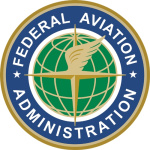- Branche: Government
- Number of terms: 35337
- Number of blossaries: 0
- Company Profile:
A special type of pressure altimeter used to send a signal to the air traffic controller on the ground, showing the pressure altitude the aircraft is flying.
Industry:Aviation
A system that uses electromagnetic waves to identify the range, altitude, direction, or speed of both moving and fixed objects such as aircraft, weather formations, and terrain. The term RADAR was coined in 1941 as an acronym for Radio Detection and Ranging. The term has since entered the English language as a standard word, radar, losing the capitalization in the process.
Industry:Aviation
Control tower position responsible for transmitting departure clearances to IFR flights.
Industry:Aviation
An altitude depicted on an instrument approach chart with the altitude value underscored. Aircraft are required to maintain altitude at or above the depicted value.
Industry:Aviation
The range of electromagnetic frequencies between 962 MHz and 1213 MHz.
Industry:Aviation
The ratio of turbine discharge pressure divided by compressor inlet pressure, which is used as an indication of the amount of thrust being developed by a turbine engine.
Industry:Aviation
The controller provides vectors while monitoring the progress of the flight with radar, guiding the pilot through the descent to the airport/heliport or to a specific runway.
Industry:Aviation
The fix, point, or location to which an aircraft is cleared when issued an air traffic clearance.
Industry:Aviation
This is the minimum flight speed at which a light, twin-engine airplane can be satisfactorily controlled when an engine suddenly becomes inoperative and the remaining engine is at takeoff power.
Industry:Aviation
Unlocking the gimbals of a gyroscopic instrument, making it susceptible to damage by abrupt flight maneuvers or rough handling.
Industry:Aviation
